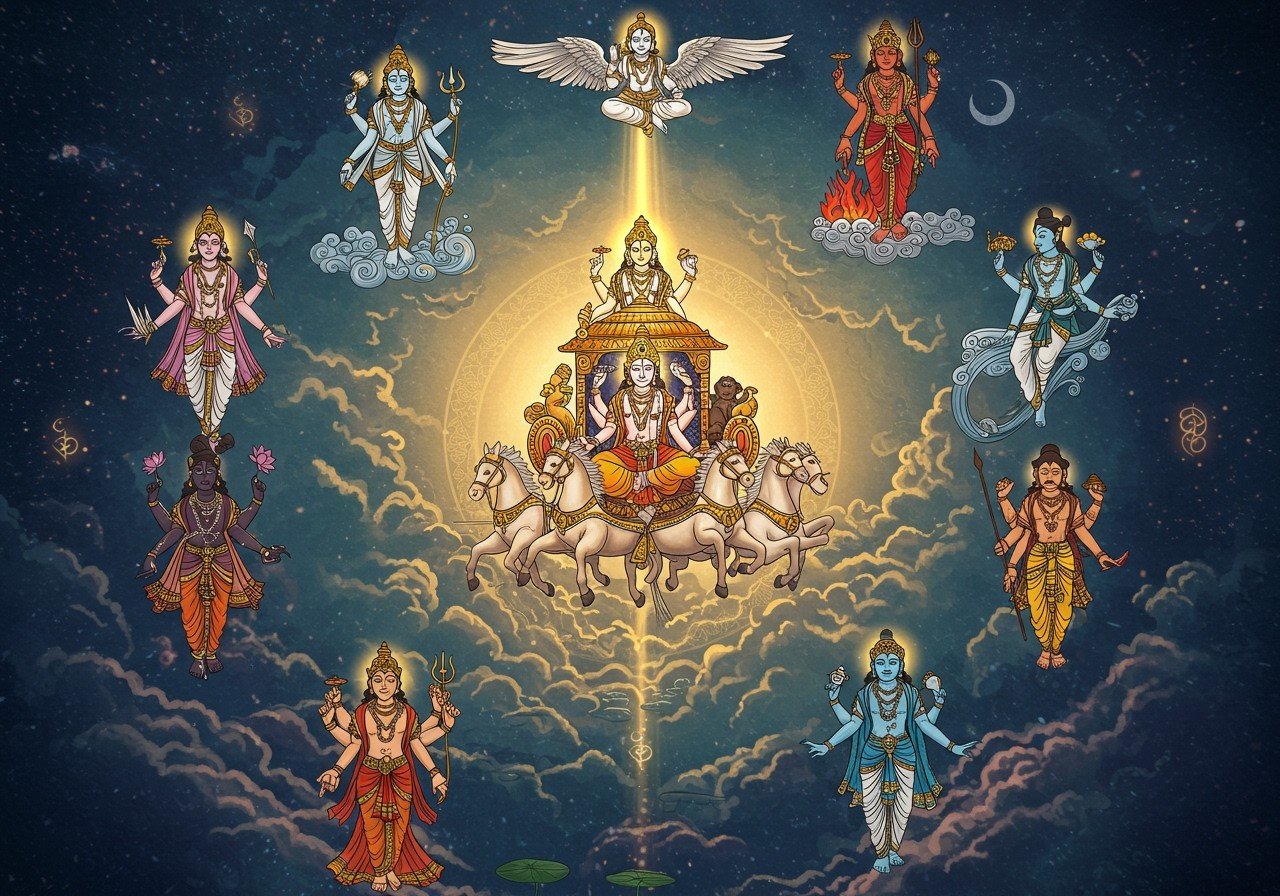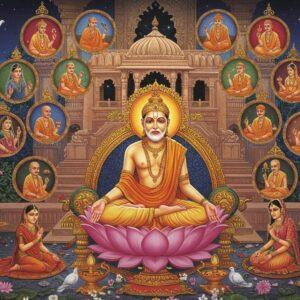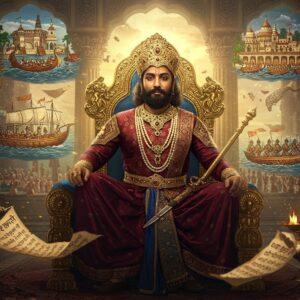Exploring the Divine Beings of Hinduism

Hinduism encompasses a rich tapestry of divine beings, reflecting the diverse traditions within this ancient faith. These deities, often seen as manifestations of the supreme being, Brahman, provide a more accessible way to connect with the divine. A Hindu may embrace various beliefs, including polytheism, pantheism, monotheism, or even agnostic views. This intricate system of gods and goddesses contributes to the depth and complexity of Hindu spirituality.
Major Deities in Hinduism
- Trimurti: This triad represents the core cosmic functions: Brahma, the creator; Vishnu, the preserver; and Shiva, the destroyer. This powerful trio forms the foundation of much Hindu theology, each deity playing a vital role in the cycle of creation, preservation, and destruction.
- Tridevi: As the feminine counterparts to the Trimurti, the Tridevi consists of Saraswati, Lakshmi, and Parvati. They embody Shakti, the divine feminine energy, crucial for balance in the universe, complementing the masculine energies of the Trimurti.
Individual Deities: A Closer Look
- Brahma: The god of creation, often depicted with four faces and four arms, representing his all-encompassing creative power. However, his active role as creator is believed complete, leading to less direct worship in contemporary Hinduism. Learn more about the complexities of creation in our detailed blog post Exploring Hinduism: Core Beliefs and Practices.
- Vishnu: The preserver and protector of the universe, embodying order, righteousness, and truth. Vishnu is revered for his avatars, incarnations taken to restore cosmic balance. Rama and Krishna are among his most celebrated avatars, each with epic tales of their divine interventions. Delve deeper into the world of Hindu gods and goddesses in our comprehensive guide Hindu Gods and Goddesses: A Complete Guide.
- Shiva: The god of destruction and transformation, responsible for the universe’s cyclical destruction and rebirth. Beyond destruction, Shiva is associated with dance, regeneration, and is known by numerous names, including Mahadeva and Nataraja. He represents the powerful forces of change and renewal that shape existence.
- Saraswati: The goddess of knowledge, music, and the arts, embodying wisdom and fostering creativity. Often depicted with a swan, symbolizing pure knowledge, Saraswati is revered by students, artists, and musicians alike. For more insights into Hindu rituals and their significance, explore our blog post Hindu Rituals: Significance and Importance.
- Lakshmi: The goddess of wealth, fortune, power, beauty, and auspiciousness. Often portrayed standing on a lotus flower, Lakshmi is believed to bestow fortune and success upon sincere devotees. Enhance your understanding of Hindu temples with our informative guide Hindu Temples Explained: A Guide to Their Significance.
- Parvati: As Shiva’s consort, Parvati represents love, devotion, and fertility. She embodies the dynamic energy, power, and creativity within the universe, complementing Shiva’s transformative nature. Dive into the sacred texts of Hinduism with our guide Sacred Texts of Hinduism: A Guide to Key Scriptures.
- Durga: A principal goddess, revered as the mother goddess and a powerful manifestation of Devi. Durga embodies the combined might of all gods, representing strength, protection, and fierce compassion.
- Ganesha: The elephant-headed god, son of Parvati and Shiva, is widely worshipped for bestowing good fortune and wisdom. Often invoked before new ventures, Ganesha is a beloved deity symbolizing auspicious beginnings. Celebrate Ganesh Chaturthi with us! Explore our guide to the celebration’s rituals and traditions Ganesh Chaturthi: Celebration, Rituals, and Traditions Explained.
Other Important Deities
- Surya: The sun god, depicted as a warrior riding a chariot drawn by seven white horses, is associated with healing and life-giving energy. His radiant power is a source of vitality and strength.
- Vayu: The god of air and wind, Vayu is also considered the god of life itself, representing the breath that sustains all beings. He is essential to the cosmic balance and the flow of energy.
- Hanuman: The revered monkey god, renowned for his strength, devotion, and pivotal role in the epic Ramayana, assisting Rama in his battle against Ravana. He is a symbol of loyalty and selfless service.
- Indra: The king of heaven and lord of the gods, wielding the thunderbolt and commanding storms and rain. Indra represents power, authority, and the forces of nature.
- Agni: The god of fire, acting as a messenger between the human and divine realms. Agni is central to Hindu rituals, mediating between worshippers and the gods through the sacred flames of offerings.
Poojn.in offers a wide selection of murtis and puja items related to these deities. Browse our collection of Lord Shiva murtis or find the perfect Lakshmi and Ganesha murti for your home.
The concept of Hindu deities is incredibly diverse, with each god and goddess representing specific facets of Brahman and playing distinct roles in the cosmic order. This rich pantheon provides a vibrant tapestry of divine energies and offers devotees a multitude of paths to connect with the sacred.
Discover more about creating a sacred space in your home with our Puja Altar Guide. We also offer a range of camphor products essential for your puja rituals.


